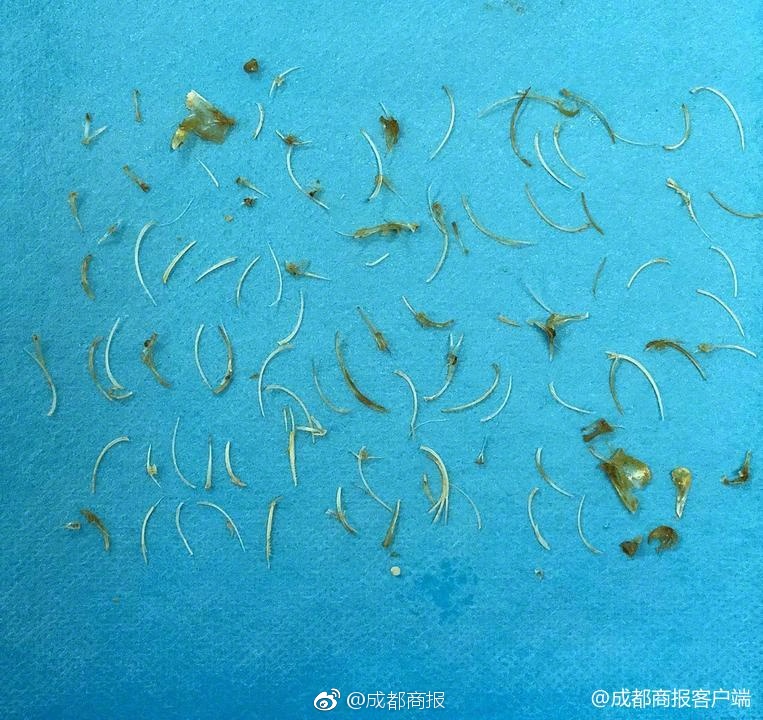
1. The five functions of the operating system are processor management, memory management, device management, file management and job management. Processor management The most basic function of processor management is to process interrupt events. After configuring the operating system, various events can be processed.
2. The main function of the computer operating system is process management, and its work is mainly process scheduling. In the case of a single user and a single taskNext, the processor is only monopolized by one user's task, and the process management work is very simple.
3. Operating System (abbreviation: OS) is a group of interrelated system software programs that supervise and control computer operation, use and run hardware, software resources and provide public services to organize user interaction.
4. Five major management functions of the operating system: (1) Job management: including tasks, interface management, human-computer interaction, graphical interface, voice control and virtual reality, etc. ( 2) File management: also known as information management. ( 3) Storage management: The essence is the management of storage "space", which mainly refers to the management of the main memory.
Any information system has five basic functions, namely: information collection and recording (input); information storage; information processing; information transmission; information output .
According to the functional introduction of the information system, the information system has five basic functions: input, storage, processing, output and control. Different functions have different functions, such as input function: the input function of the information system is determined by the purpose to be achieved by the system, the ability of the system and the permission of the information environment.
Five basic functions of the information system: input, storage, processing, output and control. Input function: The input function of the information system is determined by the purpose to be achieved by the system, the ability of the system and the permission of the information environment.Storage function: Storage function refers to the ability of the system to store various information and data. Mainly including: statistical functions.
The operating system has five functions: processor management: mainly controls and manages the work of the CPU. Storage management: mainly allocate and manage memory. Device management: mainly manage basic input and output devices. File management: responsible for the organization, storage, operation and protection of computer files.
The functions of the computer operating system include: processor management, memory management, device management, file management, job management and other functional modules. Processor management. The most basic function of processor management is to handle interrupt events. The processor can only detect interrupt events and generate interrupts and cannot process them.
The main function of the computer operating system is process management, and its main work is process scheduling. In the case of a single user and a single task, the processor is only monopolized by one user's task, and the work of process management is very simple.
The main functions of the operating system are process and processor management, job management, storage management, device management and file management, as follows: process and processor management. Because the execution of the program must rely on the processor, only one program flow can be processed and executed at any time. Homework management.
I) Processor management The most basic function of processor management is to handle interrupt events. The processor can only detect interrupt events and generate interrupts, and cannot handle these interrupt events. After configuring the operating system, all types of events can be handled.Another function of processor management is processor scheduling.
Five management functions of the operating system: job management: including tasks, interface management, human-computer interaction, graphical interface, voice control and virtual reality, etc. File management: also known as information management. Storage management: The essence is the management of storage "space", which mainly refers to the management of the main memory.

The storage management function of the operating system is to manage memory resources. It mainly realizes memory allocation and recovery, storage protection and memory expansion. The device management of the device management operating system is responsible for allocating and recycling external devices, and controlling external devices to operate according to the requirements of user programs.
The functions of the computer operating system include: processor management, memory management, device management, file management, job management and other functional modules. Processor management. The most basic function of processor management is to handle interrupt events. The processor can only detect interrupt events and generate interrupts and cannot process them.
The five functions of the operating system are processor management, memory management, device management, file management and job management.Processor management The most basic function of processor management is to process interrupt events. After configuring the operating system, various events can be processed.
UEFA Champions League standings-APP, download it now, new users will receive a novice gift pack.
1. The five functions of the operating system are processor management, memory management, device management, file management and job management. Processor management The most basic function of processor management is to process interrupt events. After configuring the operating system, various events can be processed.
2. The main function of the computer operating system is process management, and its work is mainly process scheduling. In the case of a single user and a single taskNext, the processor is only monopolized by one user's task, and the process management work is very simple.
3. Operating System (abbreviation: OS) is a group of interrelated system software programs that supervise and control computer operation, use and run hardware, software resources and provide public services to organize user interaction.
4. Five major management functions of the operating system: (1) Job management: including tasks, interface management, human-computer interaction, graphical interface, voice control and virtual reality, etc. ( 2) File management: also known as information management. ( 3) Storage management: The essence is the management of storage "space", which mainly refers to the management of the main memory.
Any information system has five basic functions, namely: information collection and recording (input); information storage; information processing; information transmission; information output .
According to the functional introduction of the information system, the information system has five basic functions: input, storage, processing, output and control. Different functions have different functions, such as input function: the input function of the information system is determined by the purpose to be achieved by the system, the ability of the system and the permission of the information environment.
Five basic functions of the information system: input, storage, processing, output and control. Input function: The input function of the information system is determined by the purpose to be achieved by the system, the ability of the system and the permission of the information environment.Storage function: Storage function refers to the ability of the system to store various information and data. Mainly including: statistical functions.
The operating system has five functions: processor management: mainly controls and manages the work of the CPU. Storage management: mainly allocate and manage memory. Device management: mainly manage basic input and output devices. File management: responsible for the organization, storage, operation and protection of computer files.
The functions of the computer operating system include: processor management, memory management, device management, file management, job management and other functional modules. Processor management. The most basic function of processor management is to handle interrupt events. The processor can only detect interrupt events and generate interrupts and cannot process them.
The main function of the computer operating system is process management, and its main work is process scheduling. In the case of a single user and a single task, the processor is only monopolized by one user's task, and the work of process management is very simple.
The main functions of the operating system are process and processor management, job management, storage management, device management and file management, as follows: process and processor management. Because the execution of the program must rely on the processor, only one program flow can be processed and executed at any time. Homework management.
I) Processor management The most basic function of processor management is to handle interrupt events. The processor can only detect interrupt events and generate interrupts, and cannot handle these interrupt events. After configuring the operating system, all types of events can be handled.Another function of processor management is processor scheduling.
Five management functions of the operating system: job management: including tasks, interface management, human-computer interaction, graphical interface, voice control and virtual reality, etc. File management: also known as information management. Storage management: The essence is the management of storage "space", which mainly refers to the management of the main memory.

The storage management function of the operating system is to manage memory resources. It mainly realizes memory allocation and recovery, storage protection and memory expansion. The device management of the device management operating system is responsible for allocating and recycling external devices, and controlling external devices to operate according to the requirements of user programs.
The functions of the computer operating system include: processor management, memory management, device management, file management, job management and other functional modules. Processor management. The most basic function of processor management is to handle interrupt events. The processor can only detect interrupt events and generate interrupts and cannot process them.
The five functions of the operating system are processor management, memory management, device management, file management and job management.Processor management The most basic function of processor management is to process interrupt events. After configuring the operating system, various events can be processed.
App to watch Champions League live free
author: 2025-01-13 15:02UEFA Champions League live streaming free
author: 2025-01-13 13:18UEFA Champions League live streaming free
author: 2025-01-13 13:02 UEFA Champions League live streaming free
UEFA Champions League live streaming free
599.77MB
Check Hearthstone arena deck Builder
Hearthstone arena deck Builder
755.69MB
Check UEFA Champions League live streaming app
UEFA Champions League live streaming app
263.76MB
Check Hearthstone Arena win rate
Hearthstone Arena win rate
851.21MB
Check Hearthstone arena class win rates reddit
Hearthstone arena class win rates reddit
593.31MB
Check Casino Plus app
Casino Plus app
626.57MB
Check 100 free bonus casino no deposit GCash
100 free bonus casino no deposit GCash
217.64MB
Check Casino Plus
Casino Plus
249.22MB
Check PAGCOR online casino free 100
PAGCOR online casino free 100
375.22MB
Check Bingo Plus stock
Bingo Plus stock
323.93MB
Check Champions League
Champions League
514.56MB
Check UEFA Champions League live streaming free
UEFA Champions League live streaming free
977.23MB
Check UEFA TV
UEFA TV
122.13MB
Check Hearthstone Arena Tier List
Hearthstone Arena Tier List
685.67MB
Check Arena plus APK
Arena plus APK
861.21MB
Check Casino Plus GCash login
Casino Plus GCash login
287.64MB
Check UEFA European championship
UEFA European championship
987.36MB
Check DigiPlus
DigiPlus
115.39MB
Check bingo plus update today Philippines
bingo plus update today Philippines
459.34MB
Check UEFA EURO
UEFA EURO
832.88MB
Check Casino redeem
Casino redeem
885.15MB
Check bingo plus update today
bingo plus update today
785.82MB
Check Bingo Plus stock
Bingo Plus stock
397.61MB
Check European Cup live
European Cup live
785.47MB
Check Free sports events uefa champions league app android
Free sports events uefa champions league app android
311.72MB
Check Hearthstone Arena Tier List
Hearthstone Arena Tier List
925.71MB
Check Hearthstone Arena Tier List
Hearthstone Arena Tier List
289.61MB
Check Casino redeem
Casino redeem
151.11MB
Check Casino Plus GCash login
Casino Plus GCash login
814.73MB
Check bingo plus update today
bingo plus update today
562.47MB
Check bingo plus update today Philippines
bingo plus update today Philippines
243.66MB
Check UEFA Champions League live streaming free
UEFA Champions League live streaming free
884.91MB
Check UEFA Champions League live streaming app
UEFA Champions League live streaming app
826.28MB
Check Casino Plus free 100
Casino Plus free 100
647.64MB
Check Arena plus APK
Arena plus APK
323.55MB
Check bingo plus update today Philippines
bingo plus update today Philippines
281.38MB
Check
Scan to install
UEFA Champions League standings to discover more
Netizen comments More
1535 Arena Plus login
2025-01-13 14:49 recommend
1675 Hearthstone deck
2025-01-13 14:15 recommend
419 Casino free 100 no deposit
2025-01-13 14:07 recommend
433 Walletinvestor digi plus
2025-01-13 14:06 recommend
1371 UEFA TV
2025-01-13 13:08 recommend